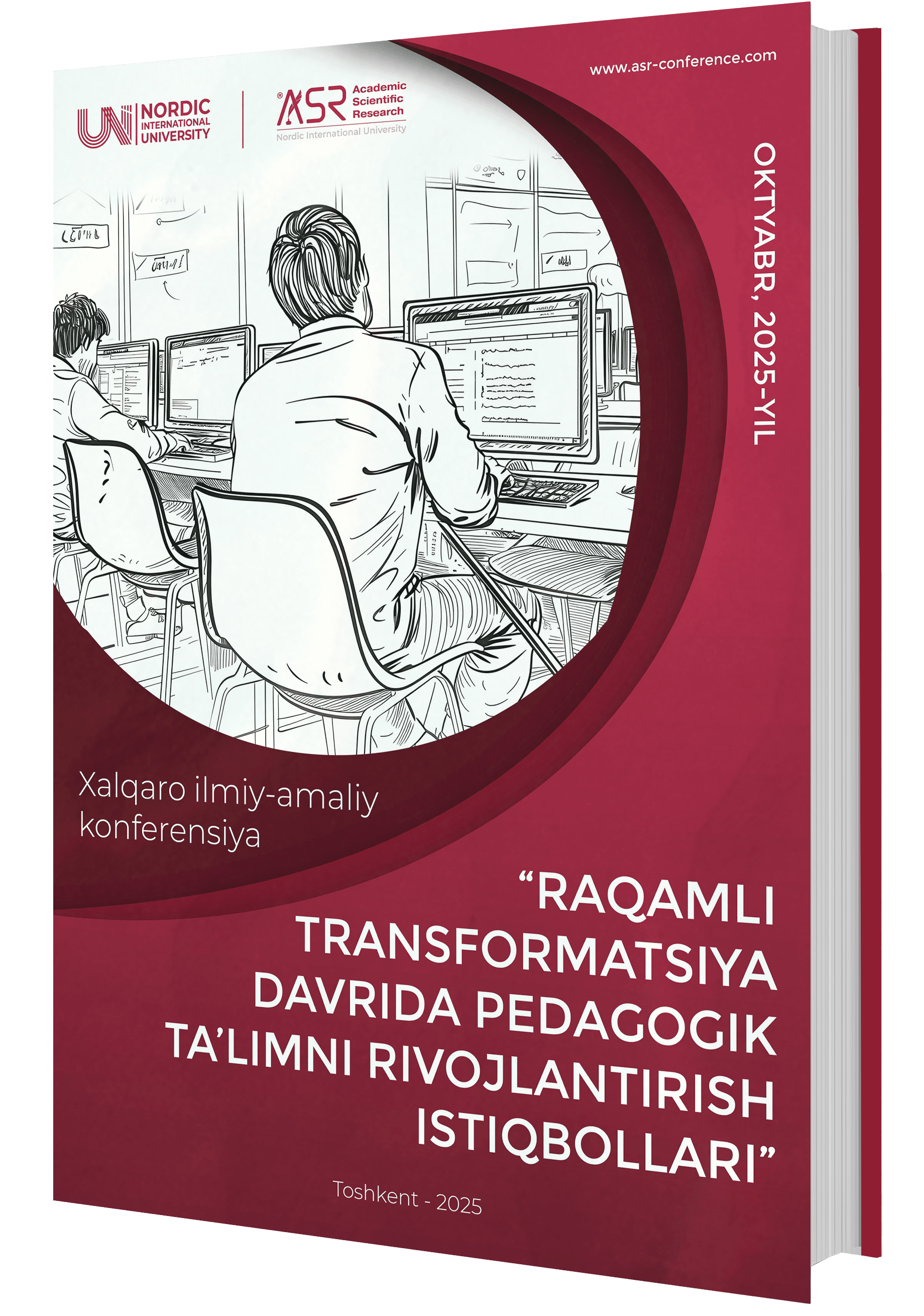TRANSLATION OF LITERARY WORKS IN A DIGITAL LEARNING ENVIRONMENT
Аннотация
In contemporary pedagogy, the digital learning environment provides unprecedented opportunities for integrating literary translation into foreign language education. Literary works, characterized by their aesthetic richness and emotive expressiveness, serve not only as linguistic material but also as carriers of culture, worldview, and affective content. However, the translation of emotional speech within literature presents complex challenges in a digital context, where both learners and instructors must balance linguistic accuracy, cultural fidelity, and the preservation of emotional nuance. This article explores the linguodidactic foundations of teaching literary translation in digital classrooms, focusing on methods to preserve the emotional speech of characters and narrators. It analyzes the pedagogical role of translation as a learning tool, highlights strategies for engaging learners in critical interpretation, and examines the use of digital technologies-such as online corpora, annotation tools, and interactive platforms-to scaffold translation practice. Ultimately, the article argues that a linguodidactic approach centered on emotional speech preservation fosters communicative competence, intercultural sensitivity, and deeper engagement with literary texts in digital learning environments.
Библиографические ссылки
Godwin-Jones, R. (2018). “Challenging hegemonies in online language learning.” Language Learning & Technology, 22(1), 2–10.
Khalikova, D. (2024). The Impact Of Social Media On Language Change And Communication Practices. Nordic_Press, 3(0003)
Kramsch, C. (2013). Language and Culture. Oxford University Press.
Newmark, P. (1988). A Textbook of Translation. Prentice Hall.
Orwell G. 1984. USA: Secker & Warburg Ltd., 1949.-p.125.
Қодирий A. Ўткан Кунлар. Тошкент: Ғафур Ғулом, 2012.-B.347
Sodiqova, S. I. (2024). Decoding names: approaches to translating anthroponyms across cultures. In International Conference on World Science and Resarch (Vol. 1, No. 1, pp. 43-47).
Sodiqova, D. (2025). Methods And Examples Of Translating While Preserving The Original Speech Of A Character. Hamkor konferensiyalar, 1(14), 1362-1366.
Turgunov, S. (2025). Sociolinguistic Effects Of Globalization: Change And Spread Of Negative Expressiveness. International Journal of Artificial Intelligence, 1(4), 1230-1233.
Wierzbicka, A. (1999). Emotions Across Languages and Cultures: Diversity and Universals. Cambridge University Press.
Загрузки
Опубликован
Выпуск
Раздел
Лицензия
Copyright (c) 2025 Dinora Sodiqova, Zilif Uzairova

Это произведение доступно по лицензии Creative Commons «Attribution-NonCommercial» («Атрибуция — Некоммерческое использование») 4.0 Всемирная.
Условия лицензии
Эта работа доступна под лицензией Creative Commons Attribution-NonCommercial 4.0 International License. Чтобы просмотреть копию этой лицензии, посетите http://creativecommons.org/licenses/by-nc/4.0/ или отправьте письмо по адресу Creative Commons, PO Box 1866, Mountain View, CA 94042, США.
По этой лицензии вы можете:
Поделиться — копируйте и распространяйте материал на любом носителе и в любом формате.
Адаптируйте — делайте ремиксы, трансформируйте и дорабатывайте материал.
Лицензиар не может отозвать эти свободы, если вы соблюдаете условия лицензии. На следующих условиях:
Атрибуция. Вы должны указать соответствующую ссылку, предоставить ссылку на лицензию и указать, были ли внесены изменения. Вы можете сделать это любым разумным способом, но не таким образом, который бы предполагал, что лицензиар одобряет вас или ваше использование.
Некоммерческое использование — вы не имеете права использовать материал в коммерческих целях.
Никаких дополнительных ограничений. Вы не имеете права применять юридические условия или технологические меры, которые юридически запрещают другим делать все, что разрешено лицензией.





